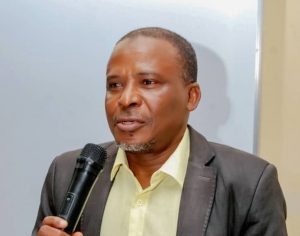
How CITAD is Fighting Covid-19 in Kano State
In late April, precisely on 25th of April, 2020, Kano State recorded its index case of the disease. Prior to the reportage of the index case in the state, the state government had taken off with measures to prevent the spread of the virus, as it is believed that Kano, as one of the country’s centres of commerce and a major trading hub in the northern region, would be a catastrophe and difficult to control a pandemic of this kind of disease is allowed to escalate.
Even before the index case, as part of its contributions to ensuring the protection of the citizens, the Centre for Information Technology and Development (CITAD) had issued series of press releases drawing the
attention of those in authority on the need to implement preventive
measures, like banning gathering of large number of people, proper monitoring of the state’s boundaries to stop indiscriminate entering of the state from neighbouring states, co-opting of civic groups to any committee(s) that would be formed, sensitising religious leaders on Covid-19, setting up a public awareness committee on Covid-19 and ensuring compliance with preventive measures outlined by the Nigeria Centre for Disease Control (NCDC) and World Health Organisation (WHO).
However, as the campaign continued to garner momentum, the Centre got a support from MacArthur Foundation and International Institute of Education where it expanded its interventions with training of 120 youth in Kano State on various ways in responding to Covid-19. Given the need to observe social distancing, the training was conducted online.
The youth during the training were taught how to develop messages, how to use social media to create awareness on Covid-19. They were also trained on community mobilisation, persuasion and how to identify key influencers in their communities. In the training, the youth were also exposed to methodologies on how to help members of their communities to fight and prevent the spread of coronavirus within the communities; the importance of observing social distancing, wearing facemasks and hand-washing.
At the end of the training the participants were asked to individually develop proposals and 41 of them who had promising proposals were given mini-grants to implement some activities in their communities. The most interesting thing about the mini grants was that youth from different communities in the state were being sub-granted and carried out the activities they proposed in their communities, this had given the sensitisation campaigns greater acceptance by the communities seeing that their sons and daughters were the ones doing the campaign.
The sensitisation campaigns reached huge number of people including people who in normal campaigns could not be reached, but due to the strategies implored by CITAD to train members of the communities and allow them to directly sensitise their people helped the campaign to achieve a lot. Some of the uniqueness of the campaign included Door-to-Door campaigns where some of the sub-grantees especially females entered house to house to sensitise women in their communities who would not be able to attend town hall meetings and other forms of gathering while others followed people to their religious gatherings like mosques and churches and trained them on the importance of adhering to Covid-19 protocols.
During the project, some of the sub-grantees produced different types of locally hand-made sanitizers, hand wash, trained women in their communities on how to produce hand wash and hand sanitizer and how to be resilient during the pandemic while others developed messages on fliers on Covid-19 protocols and distributed in their communities. At religious places, the sub-grantees distributed fliers produced banners containing Covid-19 protocols and posted them at strategic places. To ensure inclusiveness, three of the beneficiaries of the mini grants conducted their activities at People Living with Disabilities communities. While one of them was a disabled, the other two were trained sign language facilitators.
In order to ensure that the messages reached every nook and cranny of the state, the Centre also sponsored three different radio programs. Two were at Vision FM and Express Radio called “Yaki Da Cutar Koronaâ€Â and Mu Kare Kanmu Daga Cutar Korona respectively. The third program ran on Arewa Radio, another popular station in the state. These programs were designed to enlighten the people about Covid-19 and all the necessary information people needed to know about the pandemic. The programs, which were aired weekly, had professionals invited to discuss specific topics each week.
Similarly, when schools resumed in the state, CITAD felt it was important to train the state’s teachers on adjusting to new normal and NCDC guidelines with regard to reopening schools. In this aspect, CITAD trained 180 teachers from Kano State Senior Secondary Schools Management Board and Kano State Science and Technical Management Board who are expected to go back to their schools and step down the training to their follow teachers and students to ensure the safety of the teachers and students in schools.
To promote literacy and devise other ways in sending messages in the society, the Centre also supported and sponsored the publication of 1000 copies of selected poems on Covid-19 which is being developed into a book titled Corona Blues.
Other interventions made by the Centre include production of short campaign videos and serving as the Secretariat of Kano Against Covid-19 Committee. Kano Against Covid-19 is an initiative of Kano State Concerned Citizens and Civil Society leaders set up to mobilise support for the Covid-19 pandemic in Kano State
Ali Sabo is the Communication Officer and Coordinator of CITAD’s Covid-19 Project. He can be reached either by his email address: asabo@citad.org or his twitter handle: @a_sabo12


Leave a Reply